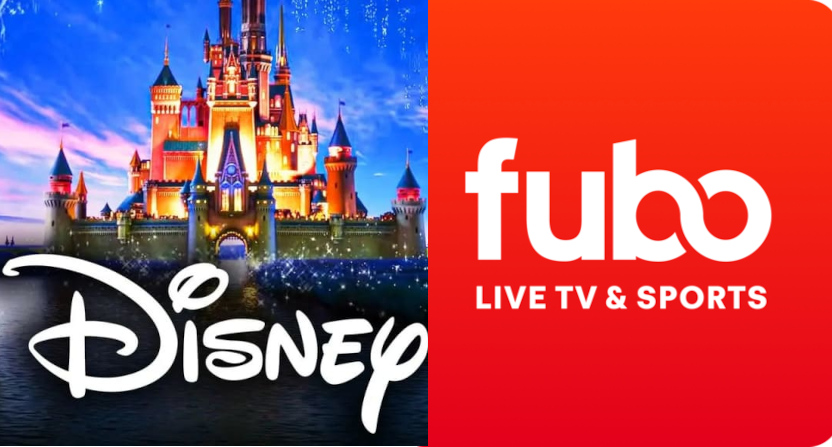January’s shocking news of Disney announcing plans to acquire Fubo and Fubo dropping its lawsuit against the planned Disney-Fox-WBD joint venture, Venu Sports, led to a lot of reverberations throughout the sports media world. Those are continuing, as Disney’s plan to buy Fubo has proceeded despite the eventual scrapping of Venu. But there are still many critics of that idea on antitrust grounds.
And the Department of Justice is now formally looking into the acquisition, per a report from Puck’s Eriq Gardner Monday night:
Here’s an excerpt from that report, which is in the What I’m Hearing+ subscriber-only newsletter from Puck’s Matt Belloni:
I’ve learned that the Department of Justice has launched a formal investigation into Disney’s acquisition of a controlling stake in Fubo, the sports-oriented streaming service. Disney and Fubo are already responding to information requests, and bracing for a potential challenge from the Trump administration over the deal, which was announced in January.
…Of course, any government attempt to unwind the Disney-Fubo deal would play out against the backdrop of President Trump’s war on major media companies—which could present complications of its own. If this does make its way into a courtroom, expect questions from defense lawyers about political interference, and comparisons to Trump’s hands-on involvement in the proposed PGA Tour–LIV Golf merger, another antitrust case between rivals that was conveniently resolved. Disney declined to comment.
As Gardner also notes, the Disney-Fubo deal raised antitrust concerns at the time. Dish and DirecTV both directly cited antitrust issues in their complaints about the move. And while many of those were about Fubo dropping its critical lawsuit against Venu, another part of this was Disney taking control of Fubo and placing it in a division alongside Hulu+Live TV, their own similar virtual multichannel video programming distributor offering.
That combination would result in a significant reduction in competition. Hulu+Live TV and Fubo are ranked sixth and 11th, respectively, in a recent list of estimated U.S. MVPD subscriber numbers, with 4.5 million and 1.5 million estimated subscribers, as of Q1 2024. Bringing Fubo under that umbrella would add to Disney’s already substantial marketplace power, especially considering that they control many of the channels these MVPDs need to strike agreements for, including ESPN’s networks, owned-and-operated ABC affiliates, Disney entertainment programming, and more.
A key legislative critic of this move has been Senator Elizabeth Warren (D-MA). While her February letter to the DOJ on this deal focused on criticisms of Disney “trying to purchase their way around antitrust law” with the Venu litigation settlement (which wound up ultimately not that crucial considering that Venu was eventually scrapped following that further DirecTV-Dish opposition), there were significant passages on the acquisition of a MVPD competitor.
Here are a few:
Disney’s proposed acquisition of Fubo appears to allow Disney to simultaneously circumvent the lawsuit while gobbling up a competitor. This proposed acquisition raises significant concerns under antitrust law, would give Disney increased market power and incentives to increase costs for viewers, and should be regarded as another data point in Disney’s history of anticompetitive behavior.
…Disney’s proposed acquisition of Fubo threatens to significantly decrease competition in the vMVPD [virtual multichannel video programming distributor] market in presumptive violation of antitrust law. The vMVPD market is already highly concentrated. In recent years, “extreme price increases from programmers” like Disney have forced competitors like Playstation Vue (closed in 2020), TVision (2021), and Duo (2024) to shut down. Today, the global market is concentrated across just four firms which account for over 90% of subscriptions worldwide. Domestic estimates show a similar concentration.
The DOJ uses the Herfindahl-Hirschman Index (HHI) to measure market consolidation. An HHI in excess of 1,800 indicates a highly concentrated market. Even acknowledging that some subscribers may have multiple services, the above estimates suggest an HHI above 3,000. If Disney acquires Fubo, the estimated HHI would climb to approximately 3,500. According to the DOJ’s merger guidelines, an acquisition that increases the HHI of a highly concentrated market more than 100 points is presumptively illegal under antitrust law.
As Gardner noted, this investigation also comes at a time when there is considerable discussion about the White House, the Federal Communications Commission, and media companies. In particular, 60 Minutes executive producer Bill Owens announced on Tuesday that he would step down from that role due to concerns about interference from leadership at CBS (whose parent corporation, Paramount Global, has a takeover agreement with Skydance that is currently under federal review).
Owens said it had become clear “that I would not be allowed to run the show as I have always run it.” And that came after President Donald Trump filed a $10 billion lawsuit against CBS in November when he was still a candidate. Trump claimed 60 Minutes’ presentation of their interview with his electoral rival Kamala Harris involved “partisan and unlawful acts of election and voter interference.” That lawsuit remains pending, but it is just one of many actions against media companies by Trump and agencies and officials in his administration.
More specifically, related to Disney, the FCC announced an investigation into the company last month regarding its diversity, equity, and inclusion policies. FCC Chair Brendan Carr wrote that the investigation was “to ensure that Disney and ABC have not been violating FCC equal employment opportunity regulations by promoting invidious forms of diversity, equity, and inclusion (DEI) discrimination.”
